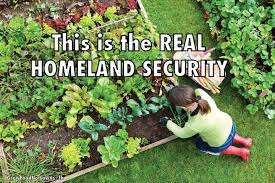What is food Security?
Food security exits when all people, at all time, have physical and economic access to sufficient, safe and Nutritious food to meet their dietary needs and food preferences for an active and healthy life
4 dimensions of food security:
- Physical availability of food
- Econmonic and physical access to food
- Food utilisation
- Stability of the other three dimensions.
Food avilability ( Supply)
The physical presence of sufficient choice and quantity of nutritious foods to meet consumer needs at competitive prices
Determinants:
- Location and accessibility of food outlets
- The availability of food within outlets
- the price, quality, variety of food available
- Promotion and marketing of food
- Food production
- Food processing
- Food transport
Food Access ( demand)
The ability of consumers to acquire food, which is safe, affordable, culturally acceptable and nutritious by using physical or financial resources.
Determinants:
- Financial resources and total household expenditure
- Physical mobility
- Area residing
- The distance & transport to food retail – dependent of public transport.
Food Utilisation
How people use food once they have accessed it.
Determinants:
- Food knowledge
- Cooking skills
- Storage facilities
- Preparation & cooking facilities
- Time
- Social support
Food utilisation
•Available space for food preparation and breastfeeding in private and public spaces
•Housing design determines whether storage space, kitchen facilities and equipment that can be used to prepare food
•Commercial design determines whether office workers and others have space for preparation and consumption of meals

•Design of commercial and public facilities determines whether there is appropriate space for women to breastfeed their babies
Food Production
Farming and agriculture
Current large scale farming practices influenced by:-
- Climate
- Market regulation – gvt
- Subsidisation & Taxation – gvt
- Importation and exportation of goods
- Regulation/cost of capital & capital materials
- Quality and nutritional standards
Effects : Price, Availability, quality and variety of food
Community supported local food Systems:
Currently there are initiatives in place to enable community members to grow their own food or purchase food directly from local farmers.
There is a current trend towards small scale, organic, localised & urban food production. such as:-
- Community and school gardens
- Farmers markets
- Urban farms
- Edible landscapes food co-operatives.
